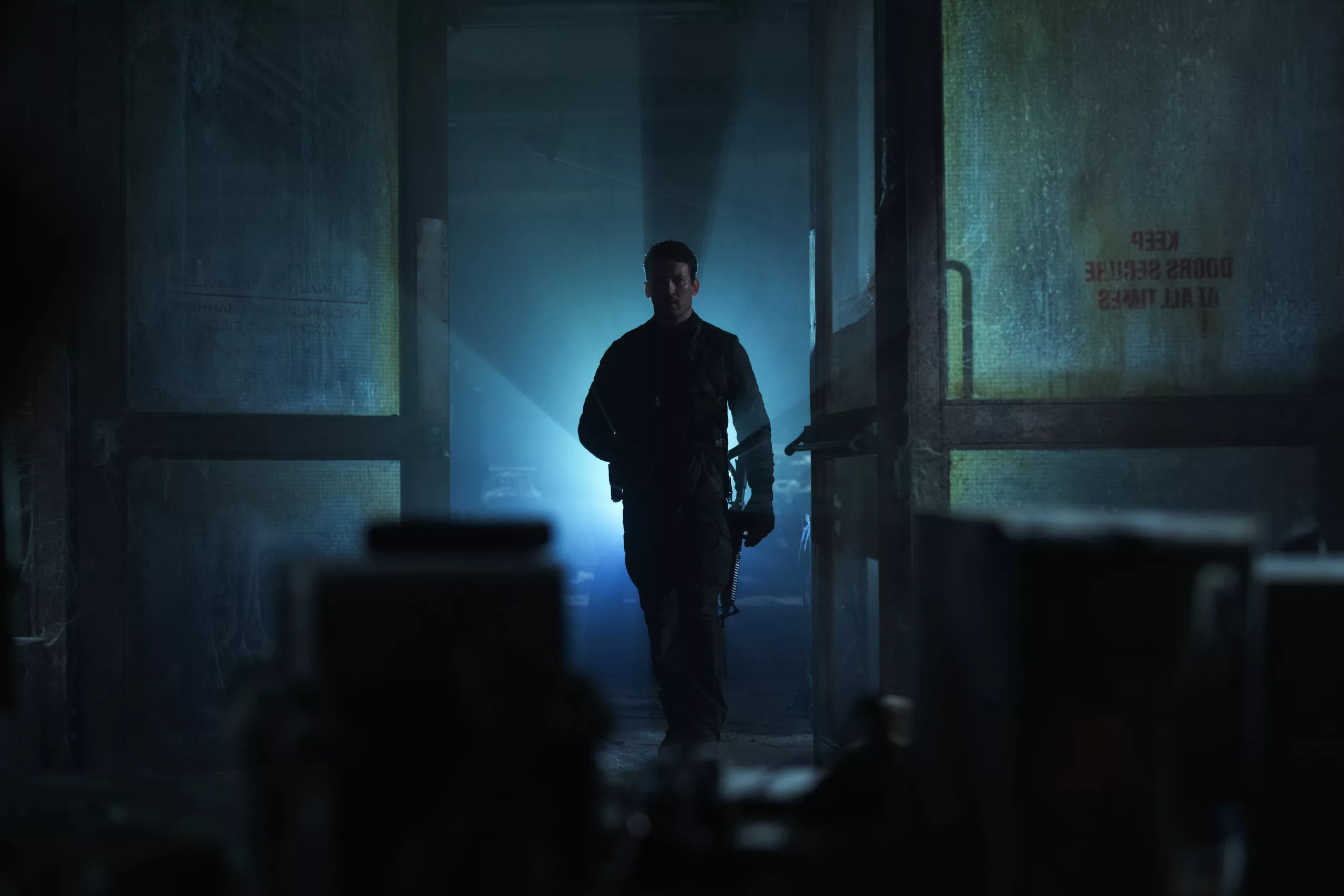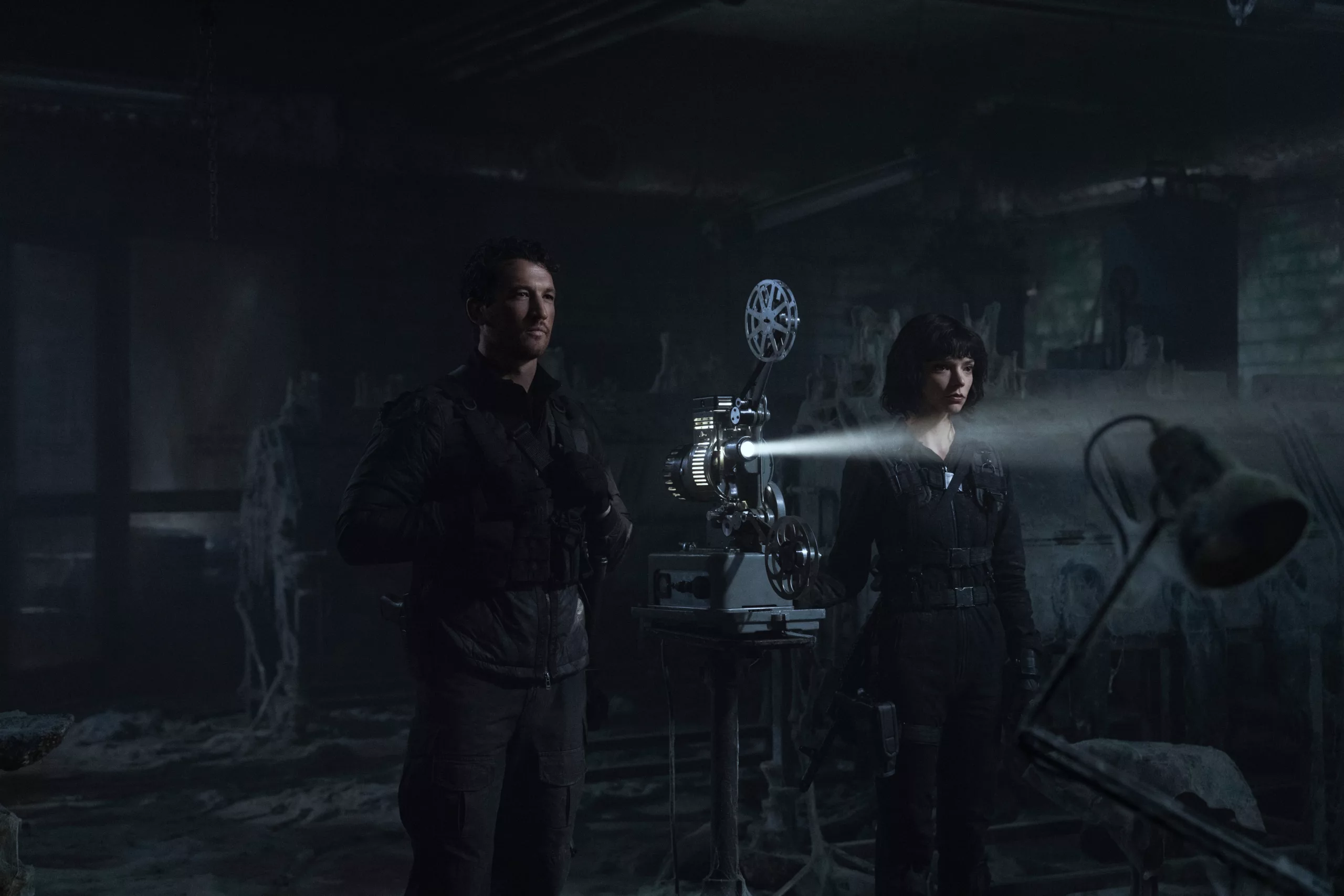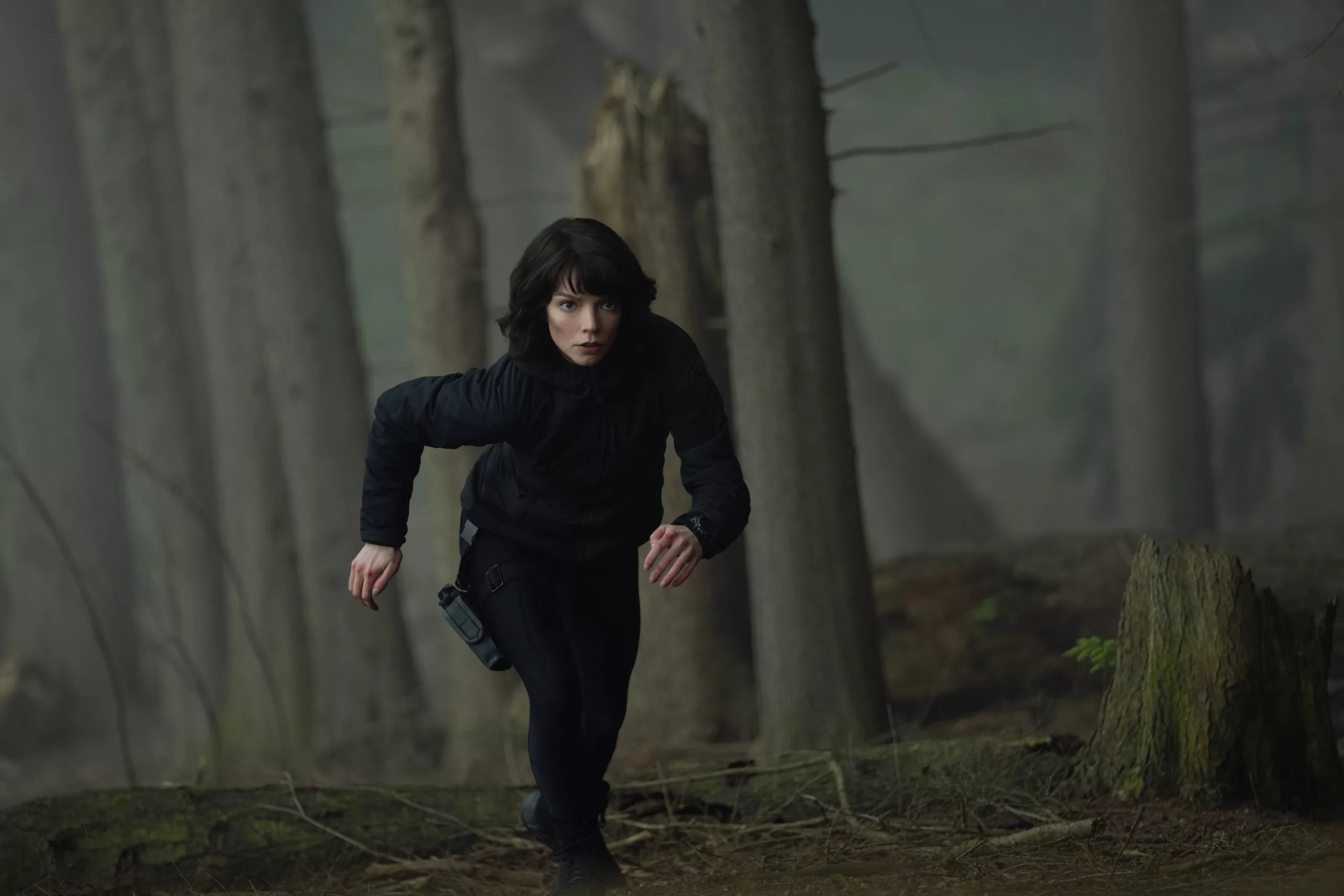Movies
Scott Derrickson Dives Deep into “The Gorge” | Interviews

It’s hard to classify which genre director Scott Derrickson’s “The Gorge” neatly slots into, given that it seamlessly switches between romance, action, horror, and political thriller with harmonious purpose. It follows Drasa (Anya Taylor-Joy) and Levi (Miles Teller), elite snipers tasked with standing guard at opposites over a gorge that contains unknown horrors. The two are strictly forbidden from interacting with each other, with the overseer of operations of the gorge, Bartholomew (Sigourney Weaver), commanding Levi to stay focused on the task at hand. The film takes its time to reveal exactly what lies beneath, focusing instead on how Drasa and Levi go from co-workers to lovers. Armed with nothing more than an endless supply of alcohol to drink away their boredom and a copious stockpile of weapons, it’s touching to see them use these materials–from setting up targets for the others to shoot or by turning their pots and pans into drum sets and having a Christmas carol jam session–to try and forge a connection with each other. Their relationship is what anchors the film once it shifts into its more horrific elements.
For Derrickson, the chance to tell a story that oscillates between moments of love and terror represents the perfect distillation of his own philosophy regarding how people change in relationship and community. “Both love and suffering are the two main things that make us change … they can make us look deeper at ourselves and see what’s going on, and hopefully do something about it and improve and grow as a person, which I believe is why we exist on the Earth in the first place,” he shared.
Derrickson spoke with RogerEbert.com at the Peninsula Hotel in Chicago about why he’s pivoting to happy endings, parallels between the ecological fallout of the Rocky Flats Power Plant and the horrors of the gorge, how the central romance grounds the film as it shifts genres, and why “The Gorge” is a perfect drive-in movie.
This conversation has been edited and condensed for clarity. This interview contains mild spoilers for “The Gorge.”
You’ve shared that what made you ultimately sign off on directing this movie was also the thing that made you pass on it in the first place, namely that “The Gorge” can’t be pinned down to any one genre. It’s a blend of romance, horror, sci-fi, and political thriller. Can you talk about how you harmoniously balanced those elements?
I thought that [screenwriter] Zach’s script effortlessly harmonized those genres, particularly in the film’s second half when it moves from science fiction and action to suspense and then to political thriller. The fun challenge of the movie was to build the romance in the beginning and not lose sight of that in the presence of all these other genres when they come blasting in one after another. It came down to being very meticulous about how this couple would look out for each other, touch each other during the action scenes, and work as a team. There are some enchanting bits of dialogue, but their love is mainly kept alive by how they watch over each other under duress. I think that’s very romantic.
They have to communicate so much without words, and it turns into a bit of a silent film in the beginning during their meet cute montage from across the gorge. I could have seen a whole movie of these characters trying to get to know each other. To me, at least, there are some pointed references to Miles’ and Anya’s past work, like when they play chess or when they have a jam session with makeshift drums … were those intentional?
(Laughs) I swear on the life of my kids that was in the script before we ever cast them. Then, when we ended up casting Anya and Miles, it hit me, and I was like, “Oh no! What am I going to do? Am I going to cut this out?” But then I thought, you know what, it’s great, and it’ll be funny, and I’m not going to get rid of this just because of their past movies.
I thought it was interesting that you cast Sigourney Weaver in a role where now she’s the bureaucratic and somewhat unfeeling leader who deploys unknowing agents to monstrous horrors like in “Aliens.”
I will say, though, unlike Paul Reiser’s character in that film, who is truly evil, one of the reasons I think Sigourney did this was because when she talked to me, I said, “I don’t think Bartholomew is a villain. She’s an antagonist who believes in what she’s doing but has moral clarity regarding her point of view.” I think that she’s wrong, but Bartholomew needed to be played as though she doesn’t like the fact that she has to kill off soldiers after they do their gorge rotations, but in her mind, that’s collateral damage for a higher purpose, which is what the masters of war do. I know the audience will not feel empathy towards her, but knowing her character would not be played as an arch-villain was one of the reasons Sigourney was open to playing her.
The fight scene atop the Willys MB Jeep that’s getting scaled up the mountain is a standout action sequence, and I know it is one of the creative decisions that you incorporated when you boarded this project. I’m curious about what other action sequences changed, or you touched up once you came on board and how you might have used the new Cyclops Augmented Reality system. (Author’s note: This technology helps creators visualize computer-generated elements in real time as they might appear in the finished film.)
The Cyclops technology was all for above the gorge. We used that to build the digital stitching of photography from Norway to construct the actual gorge out of real photography. What we did down in the gorge, though, was where my writing partner, C. Robert Cargill, and I did a lot of innovation to keep the action moving and interesting. We rewrote the whole mythology of the gorge; the DNA hybrid origins were all us.
The skull spiders were there in some form in the original script, but I also thought that the film needed a truly horrific scene. That’s when I came up with the bridge scene and what I call the “body web.” As I was writing it, the idea was that there is a DNA hybrid for something organically grown from both human and plant DNA. It’s not assimilated bodies; it’s something that’s growing on its own now. I looked at that and thought, “Well, you’re messing with God now when you’re doing things, and things like that are the result. There’s something unholy about it, which is scary. There needed to be an escalation so that each time you saw something, it was something new and interesting, and hopefully, some things you hadn’t seen before.
I’m sure you’re no stranger to seeing the horrific fallout of biochemical monstrosities, having grown up in Westminster, Colorado, especially given that the Rocky Flats Plant isn’t that far away.
I technically was in the Shaw Heights area, but you’re right. I saw our dog give birth to mutated puppies when I was a little kid because of the Rocky Flats. That happened to all the animals that were in any place that was downwind of Rocky Flats. I saw a lot of weird violence and some grotesque, disturbing things. That certainly impacted my thinking and approach as I worked on this. I still follow research and investigative reporting for what goes on in that area because it’s a big part of my history and has impacted my life.
There was a book called Full Body Burden: Growing Up in the Nuclear Shadow of Rocky Flats by Kristen Iversen that I optioned and am still trying to turn into a TV show. It’s about the process of outing Rockwell International and what they were doing to the community and being indemnified by the government. It was horrible.
If you get to make it, that project would certainly make for an interesting companion piece with “The Gorge.”
That’s part of the interest and what intrigued me about this script, too. This idea that corporate greed, power, and ambition can blend with the government and manipulate and utilize it to do things that are unethical for profit–all under the name of defense protection–I mean, that’s the gorge … that’s Rocky Flats.

I loved the incorporation of the church pews down in the gorge, but as a whole, I found the film to be an interesting encapsulation of what it’s like to move out of a sort of fundamentalist indoctrination into a kind of enlightenment, faith, and even love that’s more lasting. The arc of Levi’s and Drasa’s stories is that of going from a sort of blind trust to disillusionment to something more hopeful.
The spirituality of the movie, for me, isn’t specifically religious as much as it has to do with trauma and suffering. When both Levi and Drasa fall into the gorge, what they discover–particularly the life-threatening, dangerous, and violent experiences–dislodge them from themselves and allow them to see each other in ways they weren’t able to before.
Love and suffering are the two main things that make us change … they can make us look deeper at ourselves and see what’s going on, and hopefully do something about it and improve and grow as a person, which I believe is why we exist on the Earth in the first place. If there’s a spiritual quality to the movie, it’s about that; it’s about the hidden, angry truth that wants to get out and how love and pain facilitate that liberation.
It’s back to this idea of “perfect love casts out fear.” I think of when Drasa’s father touchingly tells her, “Give me your shame.”
Levi didn’t have a confessor; he didn’t have a priest; he didn’t have a father like she did. He held all of his guilt and shame inside and compartmentalized the complexity of what he did for a living. Miles and I worked on this together, but he was the one who came up with that line: “When you bury enough bodies, the graveyard runs out of room.” I love that because, as a character, Levi becomes aware that he can’t keep things inside anymore. He knows he’s breaking down.
Secrets that are buried get angry. They want to come out, and if you don’t let them out, they manifest in weird ways. The healthy release is through love and safety, but also, a lot of times, it takes a trauma, it takes a tragedy, it takes some suffering to make us deal with ourselves. Most people I know, myself included, that’s the story of our lives. We look back, and we see the way that we have suffered and grown, and that is sort of the defining narrative of who we are. Can anybody reflect on their lives and not define their growth through suffering or love?
Back to the church at the bottom of hell, I love this idea that the hollow men had a space for confession and processing through the ways suffering and love might have shaped them; there are still those spaces in the gorge.
I thought the genius of having the church there was the fact that all these people went in there and killed themselves rather than become one of these hybrid monstrosities. There’s something diabolical about what they witnessed, and living faithfully for these church folks meant death.
T.S. Eliot’s “The Hollow Men” is this sort of haunting refrain throughout the film. What was your relationship with Elliot’s poem and writing in general?
I love Eliot’s poetry and essays. He was one of those figures in modernism who was a voice for the anxiety and despair that defined that modernist, creative aesthetic, similar to Flannery O’Connor, who had this uncompromising Christian imagination. In Eliot’s work, there was something bleak but also hopeful that I thought was appropriate for this movie.
To your point about articulating anxieties, Eliot and O’Connor’s writing touched a lot on these themes of mystery and what it means to try and grasp a hold of something we may not know or understand.
On a simpler, less lofty level, a line in the script that Sope Dirisu’s J.D. character says is, “The Gorge is the door to Hell … and we’re standing guard at the gate.” I remember reading that and being like, “Oh, I’m in. I want to know what’s down there.” But then the story makes you wait; you don’t go down to the gorge for another 35 or 40 pages. But that mystery is lurking.
That’s why my team and I did so much work rewriting and doing visual design for the Gorge because I knew that when we went, if I created that promise in the movie and the audience felt the way I felt reading the script, then when we get down there, they better be satisfied with what they see. They better see some shit they haven’t seen before. It’s not just a zombie movie down there.
I think when I saw the undead horses barrel through, I was like, “Oh, I have no idea what comes next.”
We’re talking about really lofty shit, but at the same time, I think that “The Gorge” is a drive-in movie. It’s zany and outrageous. We throw skull spiders at people, and there’s hollow men on horseback, and there’s a web of bodies and plants covering a bridge. I think it’s really fun. I do think the film has its soul, purpose, and themes, and I hope also that it’s just a good time.
It makes it all the more fitting that Trent Reznor and Atticus Ross scored this, and they could bring in their punk rock sensibilities.
My favorite piece of music they made is when Levi and Drasa are walking through what my team and I called the Bone Tree Wasteland, where we see the trees with oversized skeletal parts. That piece of music is just sublime. It was the first piece of music they gave me for the movie. They often did a sort of industrial punk and powerful pulsating tone for the action scenes as if to communicate, “Hey man, we’re here to have a good time.” The original cut of that song was 23 minutes long, but I think that scene is only 8 seconds of the movie (laughs). Seeing those characters walking through the violet bone tree wasteland is not only my favorite visual beat in the movie, but because of the score, it’s probably my favorite sonic beat of the movie. There’s a lot to see there, even if it doesn’t last for long.
You usually don’t do happy endings for your films. But lately, with projects like “The Black Phone” and now “The Gorge,” despite their heaviness, they end a bit more hopefully. Is this a conscious shift in trend for your work?
It’s because of my wife, Maggie Levin. I’m a much happier person. I’m not interested in the same kind of bleak, hopeless endings that I was before.
So you’re saying that “The Black Phone 2” will end with a happily ever after.
(Laughs) I’m not going to go that far. I also made that film, “Dreamkill,” for “V/H/S/85” … if you want a bleak ending, watch that. That’s probably the sickest thing I’ve done.
In an interview with RogerEbert.com writer Walter Chaw, you shared, “Every film I’ve made has been a process of excavating a chunk of the anxiety and fear that I carry.” I’m curious: what fear is being excavated for you with “The Gorge?”
I want to believe that love and traumatic suffering can make you a better and freer person. This feeling of falling in love and becoming entrusted to another person in such a way that both people can divulge who they are and share secrets they may not have been able to do before… there’s fear of losing that. The chance to explore these ideas is what made this movie–along with the chance to explore the bizarre genre hybrid stuff–inescapable for me.
-
Entertainment3 weeks ago
Here’s what DeepSeek AI does better than OpenAI’s ChatGPT
-
News3 weeks ago
DeepSeek AI gets hit with data privacy red flag by Italy and Ireland
-
Entertainment3 weeks ago
DeepSeek says its newest AI model, Janus-Pro, can outperform OpenAI’s DALL-E
-
Entertainment4 weeks ago
China’s DeepSeek AI might be smarter than OpenAI’s smartest AI
-
Entertainment3 weeks ago
DeepSeek AI: What you need to know about the ChatGPT rival
-
Entertainment3 weeks ago
DeepSeek R1: Why AI experts think it’s so special
-
Entertainment3 weeks ago
iOS 18.3 is here. 3 major changes to know
-
Entertainment4 weeks ago
Elon Musk and the Roman salute: What it is and why it doesn’t matter what you call it


























